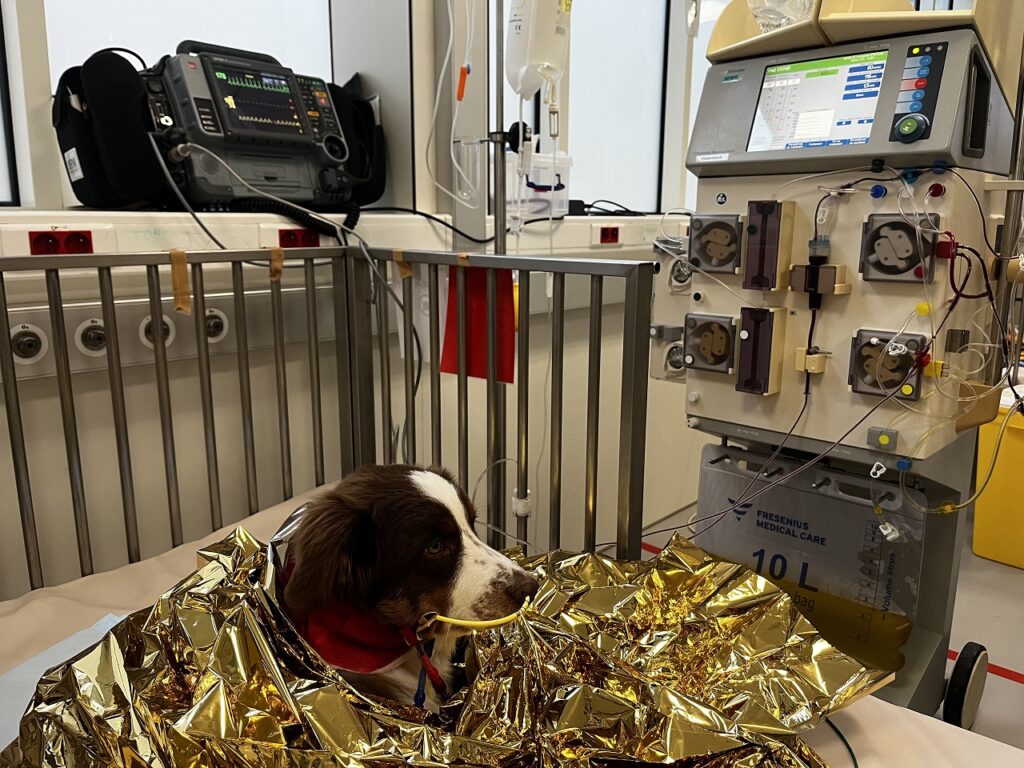
The use of antibiotics in dogs with acute diarrhea is a widely discussed topic in veterinary practice. Most cases of diarrhea are self-limiting and resolve with supportive care. Unnecessary antimicrobial use contributes to antimicrobial resistance and can significantly disrupt the intestinal microbiome. The European Network for Optimization of Veterinary Antimicrobial Therapy (ENOVAT), in collaboration with the World Small Animal Veterinary Association (WSAVA), has developed evidence-based guidelines to support veterinarians in responsible antibiotic use in dogs with acute diarrhea.
These guidelines divide the patients in different groups, based on the severity of their clinical disease:
The guidelines do not provide a clear recommendation for or against the use of probiotics in dogs with acute diarrhea.
*Systemic illness or SIRS criteria in dogs:
Degenerative left shift = the presence of a left shift (band neutrophils) where there are more immature band neutrophils than mature segmented neutrophils.
***Potential side effects: fluoroquinolones in young, growing animals may cause cartilage damage. Aminoglycosides may cause ototoxicity and nephrotoxicity.
Antibiotics should only be used when there is a clear indication of systemic infection and never routinely in uncomplicated acute diarrhea.

June 7, 2025
Feline Infectious Peritonitis (FIP) is a complex and serious viral disease affecting cats. It is caused by a mutation of the feline coronavirus (FCoV). FIP...

June 7, 2025
Extracorporeal therapies are medical treatments in which blood or other bodily fluids are removed from the body, treated externally, and then returned. These therapies are...

June 6, 2025
(Chronic) constipation is a common problem in (older) cats. In some cases, the underlying cause is easy to identify and resolve, making treatment relatively straightforward....